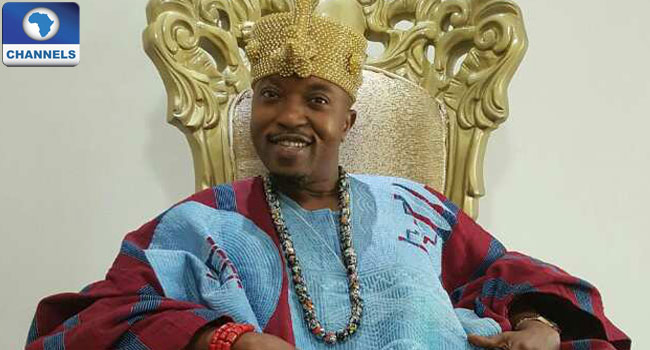IT was a fairly straightforward case between two Osun State monarchs, the Oluwo of Iwo, Oba Abdulrasheed Akanbi, and the Oluwo of Iwo-Oke, Oba Kadiri Adeoye. Oba Adeoye had filed a suit against Oba Akanbi accusing him of sundry crimes before his coronation, including being an ex-convict and engaging in Internet fraud. Until Magistrate Olusola Aluko recused himself from the case on Friday, the matter had generated serious controversy in the state and in the media. What matters at the moment is not the reason behind the misunderstanding between the monarchs, for the two traditional rulers, like politicians, can always sort themselves out either amicably or judicially. The problem is the effect the case is having on the Osun State judiciary, an effect that is underestimated, badly mismanaged, and is setting a very bad precedence.
The case began late last year. At a point, the magistrate hearing the case ordered the appearance of Oba Akanbi, a first class monarch. The oba evaded appearance, perhaps presuming that despite the case being criminal, his appearance in court was not mandatory. Thereupon a bench warrant was issued to compel his appearance. Still, the oba was neither arrested by the police as ordered nor did he appear in court as was obligatory. Palace officials, however, claimed he was ill. A reminder to order his appearance also fell on deaf ears all round. In consequence, the Osun State branch of the Magistrates’ Association of Nigeria wrote to the Osun State Chief Judge complaining of insecurity. They also threatened to embark on strike.
Three institutions should have waded into the matter immediately it was becoming obvious the matter was turning ugly. The Chief Judge is not just the head of the state’s judiciary, he is also its administrative officer. He should have intervened, together with the state’s Attorney General and Justice commissioner, to arrest the problem. Unfortunately, the state does not have an executive council, not to talk of a Justice commissioner. So, that left the matter squarely in the hands of the Chief Judge. If he took any step to forestall an ugly development from emerging, neither he nor the Chief Registrar disclosed this to anyone. It must, therefore, be assumed that timidity reigns in the judiciary, a timidity that has exposed magistrates, particularly Mr Aluko, unfortunately to accusation of reckless judicial activism.
The second institution that needed no prompting to do what was right were the police. They were not the initiator of the bench warrant, so, why was it difficult for them to arrest the monarch and produce him in court? Was the bench warrant not properly signed, or was it missing in transit? The police have absolutely no justification not to have executed the warrant. The third institution is of course the state government itself, for whether they like it or not, the responsibility for the smooth and effective running of all institutions in the state lies with the state government. They have a responsibility to ensure that no arm of government is undermined. The magistracy is a part of the judiciary; the state has a huge responsibility to ensure it is protected.
But rather than ensure that the orders of the magistrate were obeyed, the state government, according to reports, brokered peace between the warring obas thereby denying the justice system the opportunity to regulate and appropriately renew itself. Last Friday, the applicant, the Oluwo of Iwo-Oke, had been prevailed upon to withdraw the case from court. That immediately took the sting out of the case. But it neither addressed the incompetence and timidity of the police, nor resolved the contempt the defendant, Oba Akanbi, had for the court, nor erase the silly impression many powerful people have of being above the law. Worse, the negotiation that settled the feud does not demonstrate that the state government, not to say ex-president Olusegun Obasanjo, understood the theory and practice of democracy, nor that it had the administrative sense to appreciate that the course and final resolution of the case undermined the power and independence of the judiciary.
But above all, it is tragic indeed that the respondent, Oba Akanbi, did not understand the weight of the stool he sits on, how it is presumed that its occupant recognises the fact that nobility obligates, and that irrespective of the outcome of the case, it will doubtless have consequence on his image, his reign and his future as a first class monarch whose position and influence have now been terribly weakened by this unfortunate, even if momentary, lapse of judgement on his part.
Source: The Nation
Social Media Links
Facebook – www.facebook.com/osundotlife
Instagram – www.instagram.com/osundotlife
Twitter – www.twitter/osundotlife
Kindly share this story | All rights reserved. This material, and other digital content on this website, may not be reproduced, published, broadcast, rewritten or redistributed in whole or in part without prior express written permission from OSUNDOTLIFE.
Contact: editor@osun.life
WhatsApp: 📲 +2348092333666

